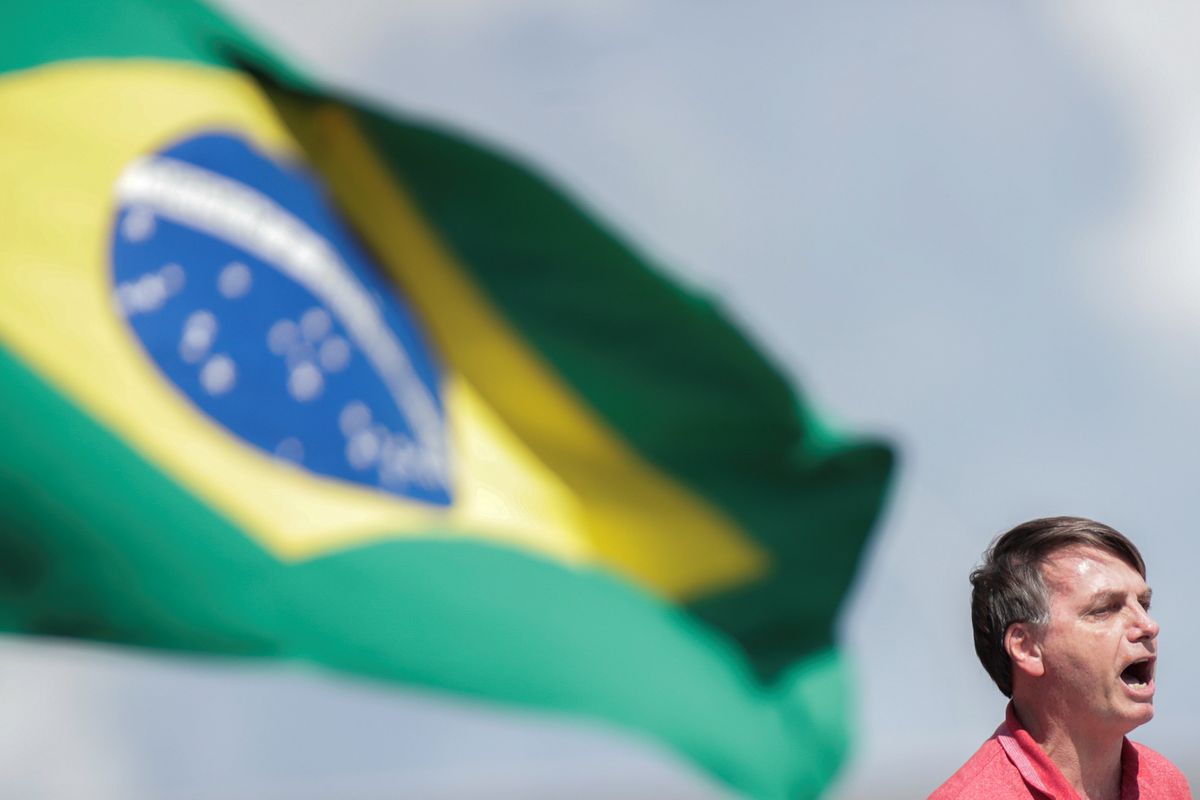Less than two years ago, Brazilians elected a controversial and untested political outsider as president.
Some voted for former army captain Jair Bolsonaro because they saw him as their best shot to break up a corrupt political class. Others took a shine to his far-right culture warrior comments about homosexuals, women, and minorities. And many who disliked his social views still voted for him as the best candidate to push through much-needed economic reforms.
Since taking power, the combative Bolsonaro, lacking a strong political party of his own, has run up against the country's establishment political forces. He's tangled with progressives over his tough crime policies, and with environmentalists over relaxing protections for the Amazon. He's constantly clashed with dogged journalists, whom he and his supporters dismiss as "fake news," or worse.
But over the past few weeks, things have gotten especially ugly for Bolsonaro.
First, he's badly mishandled the coronavirus pandemic. A combination of macho posturing and genuine fears about what shutdowns might do to Brazil's economy have led Bolsonaro to dismiss the seriousness of the outbreak, squabble with governors over lockdowns, back anti-quarantine protests, and fire his health minister, who had become more popular than the president himself. Bolsonaro's "good/excellent" approval ratings are now in the low 30s. Even with spotty testing, Brazil's reported numbers of both coronavirus cases and fatalities are the highest in Latin America, with deaths per 1,000 people well ahead of smaller countries like Argentina, Chile, Colombia, and Mexico.
Now the country's anti-corruption czar has hit him with a devastating accusation. On Friday, Justice Minister Sergio Moro resigned, claiming that Bolsonaro was obstructing federal investigations of whether his own sons took part in kickback schemes and fake news rackets. Moro's accusations struck like a thunderbolt. He is a popular anti-corruption crusader whose sprawling, five-year long "Car Wash" graft investigation jailed the popular but polarizing leftwing former president Luiz Inacio "Lula" da Silva, as well as hundreds of Brazil's top businesspeople. Moro's place in Bolsonaro's government gave the president anti-corruption credibility. The resignation and allegations are hugely damaging.
Bolsonaro has replaced Moro with a loyalist, but Brazil's supreme court has already opened a probe of Moro's allegations. Whispers about impeachment have begun to ripple through Brasilia.
So, is the leader of Latin America's biggest economy on the ropes?
Things don't look good, but Bolsonaro isn't a spent force just yet.
First, lawmakers are reluctant to plunge the country into its second impeachment in just four years, particularly while the coronavirus crisis rages on. That said, the next election is still more than two years away.
Second, his base of public support is small but solid. Bolsonaro still enjoys the devoted backing of a solid 30-40 percent of the population, at least for now. That makes impeachment a political gamble for Congress. Former president Dilma Rousseff's approval fell to near single digits before she was impeached in 2016.
Third, look who's waiting in the wings. If Bolsonaro is impeached, the presidency would go to Vice President Hamilton Mourão, a hardline former general who admires the country's 1964-1985 dictatorship. Weak as Bolsonaro seems right now, that might make Bolsonaro's critics and opponents think twice before trying to get rid of him just yet.






